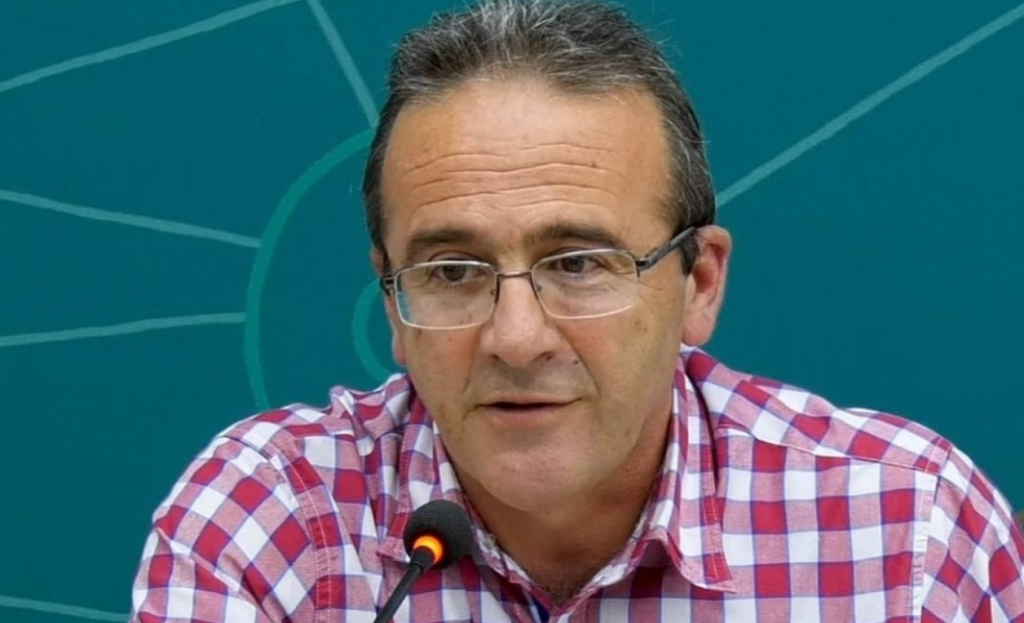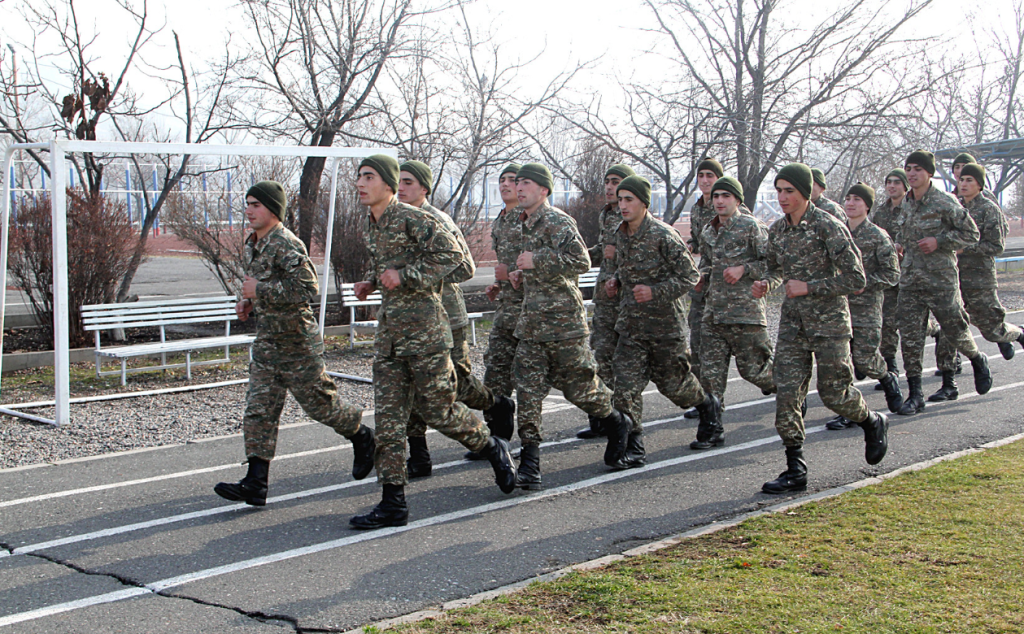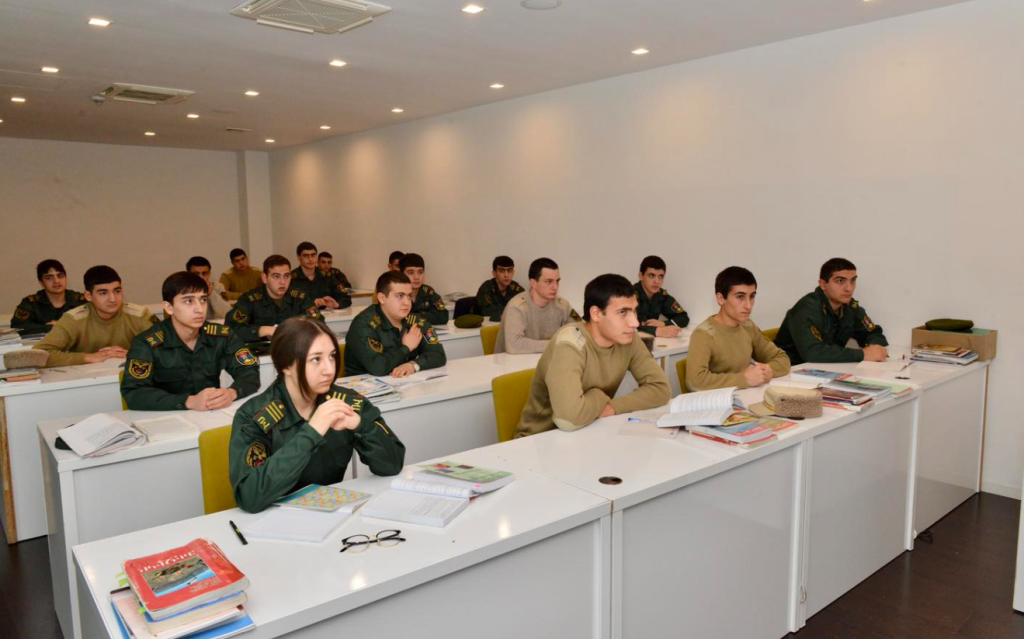By Alexander Pracht
Last year, 40 servicemen died in the Armenian military, with only four of those deaths occurring in clashes with Azerbaijan, according to the country’s Military Prosecutor’s Office. While this is an improvement from the 71 deaths in 2023, it still highlights a troubling issue: dozens of soldiers lose their lives not in battle, but to murder by fellow servicemen, suicides, hazing, and safety violations.
For a small country like Armenia, public distrust in the military is highly concerning, especially at a time when Yerevan faces increasing threats from neighbors.
Armenia has compulsory conscription for men aged 18–27. But the lack of discipline, bullying, and unsafe conditions are pushing young men to dodge the draft, either through bribery or emigration.
Human rights activists are calling for reforms to address the root causes of these deaths. They stress the need for stricter safety standards, a crackdown on hazing, and a cultural shift toward respect and accountability within the military. Without significant change, the armed forces will continue to lose public trust, undermining national security and the integrity of the military itself.”There is no single cause behind non-combat deaths,” Artur Sakunts, chairman of the Vanadzor-based Helsinki Citizens’ Assembly, one of Armenia’s leading human rights organizations, told CivilNet. “It is a complex set of problems, and each one is equally significant and alarming.”

Sakunts contributes the issue to low levels of discipline, the quality of military education, the persistent Soviet-era system of informal hierarchies, the influence of criminal subcultures, and the ongoing presence of nepotism and corruption.
“When nepotism prevails in the military, servicemembers lose trust in their command,” he says.
In official statistics, fatal incidents are categorized as either duty-related or unrelated to duty, but this classification can sometimes be confusing, as it is not always easy to determine where each particular case fits.
Edgar Khachatryan from the Peace Dialogue, an Armenian NGO that advocates for defense reforms in the country, explained to CivilNet that “unrelated to military service” typically refers to incidents that occur during a servicemember’s time off or those that relate to their life outside the military. However, the distinction can be tricky.

“For example, if a serviceman, struggling with gambling debts, takes his own life, it may be categorized as unrelated to military service, even though the pressures he faced could have been influenced by his military life,” Khachatryan said, adding that clearer classification and better cooperation between civil society and the authorities is necessary to address this issue.
Bringing meaningful reform to Armenia’s military is not easy. The country faces a difficult mix: it maintains a mandatory draft system, remains technically at war with Azerbaijan amid ever-looming threat of resuming hostilities, and continues to feel strong political and military pressure from Russia. These conditions complicate any effort to modernize or open up the armed forces.
According to Edgar Khachatryan, the problem of non-combat deaths is deeply political.
“Discipline and the number of deaths are directly linked to the country’s broader standards,” he told CivilNet. “Armenia still needs to move away from many Soviet-era traditions. In NATO countries, hazing and bullying still happen, but far less frequently. That’s because they have democratic institutions, civilian oversight, functioning courts, and real parliamentary control – things that are still weak in post-Soviet states like Armenia, Russia, or Azerbaijan.”

While there has been some progress in recent years, data collection remains a challenge. Khachatryan noted that figures gathered by his organization, Peace Dialogue, have mostly aligned with official numbers over the last few years, but that wasn’t always the case.
“Between 2010 and 2018, there was a major gap between our data and what the authorities reported. That gap has narrowed recently, which is encouraging,” he said. “The lowest number we recorded was in 2018, but since then, the figures [of non-combat deaths] have been gradually climbing back to earlier levels.”
Corruption kills
Corruption within the military deepens the already dangerous conditions facing Armenian servicemen. According to Sakunts, the consequences of corruption can often be seen in tragic incidents, particularly road accidents.
“Servicemembers often die in car accidents. The country is mountainous, and young recruits frequently drive heavy trucks. This sometimes leads to tragedies,” he told CivilNet.
However, Sakunts emphasized that these cases cannot simply be written off as accidents. “The command is always responsible in these cases, whether it’s because they fail to provide proper training or force conscripts to drive vehicles that are in poor condition due to a lack of discipline or corruption. These cases cannot be separated from the broader problem,” he added.
Khachatryan also pointed to how corruption undermines Armenia’s justice system, preventing any meaningful accountability for fatal incidents in the army. “If there is no trust in the judiciary or the courts, then no real change will happen. Impunity will continue,” Khachatryan explained. He stressed the need for comprehensive reforms at every level, including vetting all prosecutors and investigators.
Independent oversight
In many countries with compulsory military service, hazing and abuse have long been embedded in military culture, often seen as a “rite of passage” rather than a serious human rights issue. This has led to deep psychological stress among conscripts, sometimes with fatal consequences. Suicide remains one of the leading non-combat causes of death in compulsory conscription systems, especially where oversight is weak and complaints are ignored.
South Korea, which also has mandatory service and faces similar challenges, significantly reduced suicide rates in its military after numerous cases were publicized. The government responded by punishing hazing more strictly, allowing anonymous reporting, increasing mental health services, and opening military units to monitoring by outside organizations. These changes didn’t eliminate the problem entirely, but they helped cut suicide rates in half and made military service safer and more accountable.

Just like Armenia’s, the South Korean military has compulsory conscription and is technically at war. Although it still suffers from a similar non-combat death problem, the introduction of comprehensive oversight and confidential reporting mechanisms helped it cut suicide rates by half since 1993. (PHOTO: World Armies / Flickr)
To make real progress in Armenia, human rights experts say more external oversight is essential. One key proposal is to establish a dedicated military ombudsperson. “Right now, Armenia has only one ombudsperson covering all issues. That’s not enough,” said Artur Sakunts.
Mental health support inside the military also needs a structural shift. Khachatryan believes it is possible to have independent counselors stationed in units, physically present, but reporting directly to the Defense Ministry or even a civilian agency, not to local commanders.
For now, the Armenian Defense Ministry appears reluctant to introduce independent supervision in military units. In response to CivilNet’s inquiry, the ministry said that military psychologists remain under the command of their respective units. “Military psychologists are subordinate to unit commanders, while their professional activities are overseen and coordinated by the Public Health Department of the General Staff,” the ministry stated.
This structure leaves little room for the kind of independent oversight that human rights advocates say is crucial for building trust and preventing abuse.

Whistleblowing mechanisms
Robust abuse reporting systems have played a key role in reducing violence and improving accountability in the militaries of countries like Germany, the United States, and South Korea.
According to Armenia’s Defense Ministry, a 24/7 hotline operates as part of its Human Rights and Welfare Center, where both civilians and servicemembers can report incidents of violence, corruption, or criminal activity anonymously. In partnership with the Armenian office of the Council of Europe, the ministry also recently launched a smartphone app called Citizen in Uniform, designed to allow anonymous submissions from military personnel.
Rights advocates say that the problem is not technical, but rather lies within the lack of trust. “We need to learn from other democratic countries. They’ve created systems that people believe in,” said Edgar Khachatryan. In Armenia, though, many soldiers are skeptical that their reports will remain confidential, or that they will be protected after coming forward.
“Moreover, the reporting mechanism doesn’t necessarily have to be inside the army or even within the defense ministry, it can be part of law enforcement or civil institutions,” he explained.
Criminal subcultures in the ranks
In most post-Soviet countries, including Armenia, criminal subcultures, known in Russian as ponyatiya, have long shaped behavior in prisons and, by extension, in the military. These unwritten rules create an informal hierarchy based on power, intimidation, and silence. Physical violence, psychological abuse, and even rape are used to enforce order. One of the core principles is the total rejection of cooperation with law enforcement: reporting abuse or maltreatment is seen as betrayal not just by the abusers but also by other peers. This system operates in parallel to official regulations, often overriding them.
Such criminal subcultures are not just tolerated, they are often encouraged by military commanders and are commonly glorified in society as part of a soldier’s hardship, a rite of passage that builds strength and character. Many officers use informal hierarchies and collective responsibility to keep soldiers in check. Delegating authority to “stronger” conscripts to control others may seem like a shortcut to discipline, but it only deepens the atmosphere of fear and violence.
Edgar Khachatryan emphasized to CivilNet that this criminal mindset plays a critical role in the persistence of non-combat deaths and abuse. “One of the most important aspects is the criminal subculture. It originates from the Soviet penal system of the 20th century and is still deeply rooted in society today. These values are often romanticized and end up shaping behavior in the military as well,” he said. Khachatryan stressed that the Armenian government must take serious steps to ensure that these informal rules do not overshadow the law and military regulations. “The state has to guarantee that the criminal code, not the prison code, rules the army.”
Educational challenges
Military education plays a key role in shaping the values and conduct of both officers and conscripts, and human rights advocates in Armenia believe this area needs serious attention. While topics like human rights and military ethics are formally part of the curriculum in Armenian military academies, experts argue that what exists on paper does not always translate into real change on the ground.

“Military commanders often treat servicemen as if they are not citizens, as if entering the army means losing one’s civil rights entirely,” Sakunts told CivilNet. “Yes, certain rights, like freedom of movement, are naturally limited in the military. But soldiers still remain citizens, and their dignity and rights should be respected.”
According to him, this shift in thinking should begin as early as in high school during preliminary military training, a subject present in Armenia’s universal curriculum. “We need to teach not only how to disassemble an AK, but also how to build proper relationships between superiors and subordinates,” he said.
Edgar Khachatryan agrees that military education must include serious discussion about rights and responsibilities, including the prevention of torture, discrimination, and abuse. But he warns that progress in military education cannot happen in isolation. “It all depends on broader democratic development. Without real democratic institutions, no amount of classroom instruction will make a meaningful difference,” he said.
International cooperation could also offer a way forward. Partnerships with countries like France and others with modern, rights-based military systems can help Armenia modernize its training programs and better prepare its commanders, both in terms of practical knowledge and the values necessary to build a professional and disciplined army.
An existential matter
External challenges make reforming Armenia’s military particularly difficult. Any move toward cooperation with Western countries is often met with sharp backlash from Azerbaijan, sparking waves of threats and hostile rhetoric. At the same time, Armenia’s traditional military alliances are in a state of uncertainty. The country remains a formal member of the Russian-led Collective Security Treaty Organization, but has significantly scaled back its cooperation with Moscow following Russia’s invasion of Ukraine and its failure to support Armenia during the 2022 Azerbaijani incursion and the 2023 ethnic cleansing in Nagorno-Karabakh.
NATO, for its part, is not a realistic alternative. Turkey’s position in the alliance guarantees a veto, and Russia has shown it will go to great lengths to punish countries in its orbit for turning westward. The future of NATO itself is unclear, with the Donald Trump administration openly distancing the country from transatlantic commitments.
Despite all of this, meaningful changes in Armenia’s military cannot wait. Reform is urgently needed not only to strengthen resilience against foreign threats but also to stop Armenian soldiers from being killed or driven to suicide by their own peers. In a country as small as Armenia, with a relatively small army, this is not just a moral issue: it is a matter of national security and dignity, and every soldier counts.
The post Non-combat deaths plague Armenia’s military appeared first on CIVILNET.